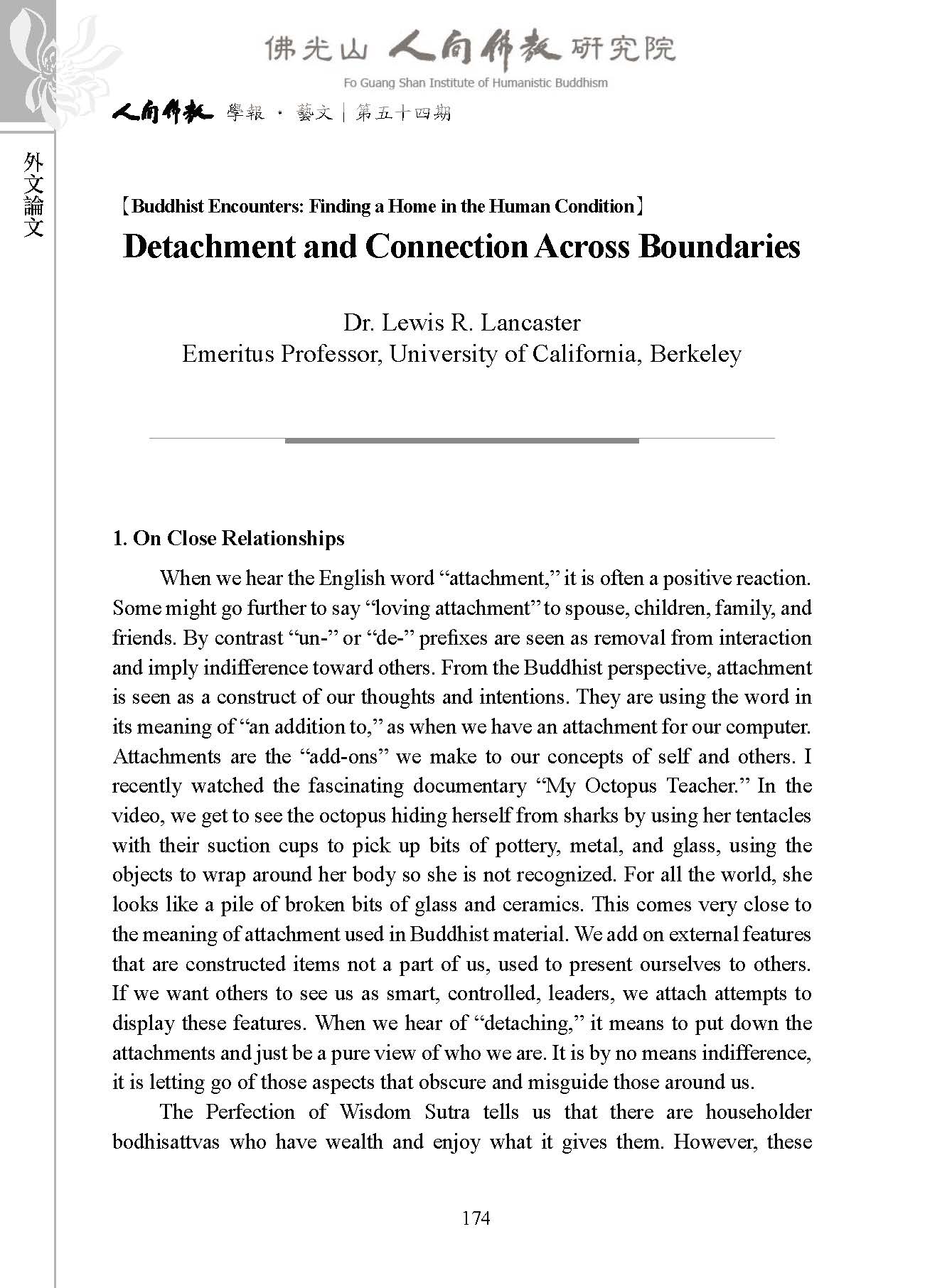
|
Detachment and Connection Across Boundaries
分類
論文
期別
《人間佛教學報‧藝文》第54期
作者
Lewis R. Lancaster
單位職稱
Emeritus Professor, University of California, Berkeley
編者
妙凡、蔡孟樺主編
關鍵字
摘要
When we hear the English word “attachment,” it is often a positive reaction.Some might go further to say “loving attachment” to spouse, children, family, and friends. By contrast “un-” or “de-” prefixes are seen as removal from interaction and imply indifference toward others. From the Buddhist perspective, attachment is seen as a construct of our thoughts and intentions. They are using the word in its meaning of “an addition to,” as when we have an attachment for our computer. Attachments are the “add-ons” we make to our concepts of self and others. I recently watched the fascinating documentary “My Octopus Teacher.” In the video, we get to see the octopus hiding herself from sharks by using her tentacles with their suction cups to pick up bits of pottery, metal, and glass, using the objects to wrap around her body so she is not recognized. For all the world, she looks like a pile of broken bits of glass and ceramics. This comes very close to the meaning of attachment used in Buddhist material. We add on external features that are constructed items not a part of us, used to present ourselves to others. If we want others to see us as smart, controlled, leaders, we attach attempts to display these features. When we hear of “detaching,” it means to put down the attachments and just be a pure view of who we are. It is by no means indifference, it is letting go of those aspects that obscure and misguide those around us.
引文
Lewis R. Lancaster:〈Detachment and Connection Across Boundaries〉,收入妙凡、蔡孟樺主編:《人間佛教學報‧藝文》第54期,高雄:財團法人佛光山人間佛教研究院,2024年 11月,頁174-181。
全文下載











